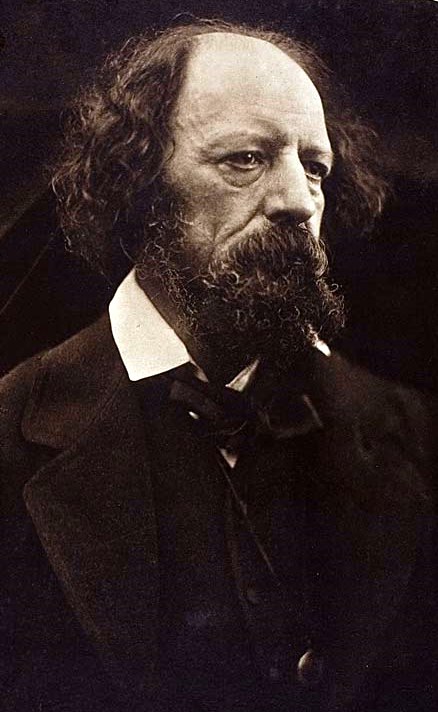“La voce dei morti era per me una voce vivente.”
Origine: Citato in Harry Carmichael, epigrafe a Delitto al rallentatore, Il giallo Mondadori, n. 1160, 25-4-1971.
Alfred Tennyson, primo Barone Tennyson , fu un poeta inglese, laureato del Regno Unito, nonché uno dei più famosi del suo Paese.
La maggior parte dei suoi versi furono ispirati a temi classici o mitologici, anche se la celebre In Memoriam fu scritta per commemorare il suo migliore amico Arthur Hallam, anch'egli poeta e suo compagno di corso al Trinity College di Cambridge, che si era fidanzato con sua sorella ma era improvvisamente morto nel 1833 a causa di un'emorragia cerebrale.
Una delle opere più famose di Tennyson sono gli Idilli del re , una raccolta di poesie interamente basate su Re Artù e sul ciclo brettone, tema ispiratogli dai racconti che Sir Thomas Malory aveva precedentemente scritto sul leggendario sovrano. L'opera fu dedicata al Principe Alberto, marito della regina Vittoria. Nel corso della sua carriera Lord Tennyson si cimentò anche nella composizione di drammi teatrali, ma in questo campo i suoi lavori riscossero uno scarso successo.

“La voce dei morti era per me una voce vivente.”
Origine: Citato in Harry Carmichael, epigrafe a Delitto al rallentatore, Il giallo Mondadori, n. 1160, 25-4-1971.
“Non ha amici l'uomo che non si è fatto mai dei nemici.”
Origine: Citato in Guido Almansi, Il filosofo portatile, TEA, Milano, 1991.
" Hands All Round http://whitewolf.newcastle.edu.au/words/authors/T/TennysonAlfred/verse/tiresias/handsallround.html", l. 1-4 (1885)
Stanza 21
Locksley Hall Sixty Years After (1886)
The Sisters, reported in Bartlett's Familiar Quotations, 10th ed. (1919)
“The golden guess
Is morning-star to the full round of truth.”
Columbus, reported in Bartlett's Familiar Quotations, 10th ed. (1919)
Part I, section xxii, stanza 3
Maud; A Monodrama (1855)
" The May Queen http://home.att.net/%7ETennysonPoetry/tmq.htm", st. 1 (1832)
Origine: Locksley Hall Sixty Years After (1886), Line 172
The Death of the Duke of Clarence and Avondale
“My lord, you know what Virgil sings—
Woman is various and most mutable.”
Act iii, scene 6
Queen Mary: A Drama (published 1876)
To ———, after reading a Life and Letters, stanza 4, from Poems (1850)
The Daisy, Stanza 1; reported in Bartlett's Familiar Quotations, 10th ed. (1919)
Part II, section iv, stanza 3
Maud; A Monodrama (1855)
Evan Charteris, Life and Letters of Sir Edmund Gosse (1931), p. 197
“Charm us, orator, till the lion look no larger than the cat.”
Origine: Locksley Hall Sixty Years After (1886), Line 112
“When every morning brought a noble chance,
And every chance brought out a noble knight.”
Origine: Morte D'Arthur (1842), Lines 230-231
Origine: Locksley Hall Sixty Years After (1886), Line 139
Part I, section xxii, stanza 9
Maud; A Monodrama (1855)
Epilogue to The Charge of the heavy Brigade, reported in Bartlett's Familiar Quotations, 10th ed. (1919)